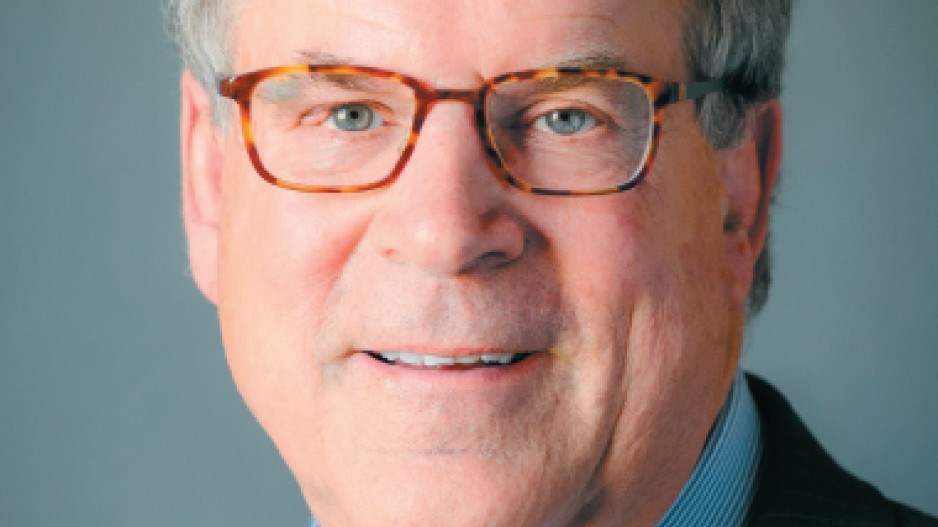Steve Thomson, B.C.'s former minister of natural resource operations, energy, and agriculture and lands, is now Minister of Forests, Lands and Natural Resource Operations. Thomson has represented the riding of Kelowna-Mission since 2009. His family owns a farm in the area, and he has represented other ranchers as the former executive director of the BC Agriculture Council. Thomson has also been general manager of the BC Fruit Growers Association and the BC Milk Producers Association.
As part of its interview series with new B.C. cabinet ministers, Business in Vancouver recently spoke with Thomson.
Cabinet Q&A
Q: What will you be focused on heading into the fall?
A: We'll be continuing a strong focus on streamlining our permitting processes for [land and water] authorizations, getting more online applications and working on the First Nations consultation processes.
On the forestry side, we've got a strong mandate to continue and develop and expand the Asian markets for B.C. forest products, so we'll be leading forestry-specific trade missions this year with a focus on China, Japan, Korea and India in partnership with the industry. The other key area will be the continued work coming from the mid-term timber supply committee and the [committee] action plan, including a process of public consultation around one of the key recommendations around area-based tenures.
Q: You proposed to change B.C.'s forestry legislation to allow for more types of area-based tenure, including tree-farm licences, a form of tenure that allows a forestry company to have long-term land-use rights and responsibilities over areas of public forests. After widespread opposition from environmentalists, First Nations and the NDP, you committed to holding public consultations this summer before proceeding with the change. When will that consultation happen?
A: We're working on how that would take place. We'll be doing further consultation on that to make sure we have a complete and balanced understanding of what area-based tenures are and what they aren't. In my view, it is still an important component of being able to address the mid-term timber supply.
Q: Critics have complained that major gaps in forest inventory have occurred while the BC Liberals have been in power. Is it time to update the inventory?
A: And that's exactly why we've announced, earlier this year, the strategic inventory plan, with $10 million in funding toward it on an annual basis. That will be a critical component of the work.
Q: There's also been criticism in the past that your government has focused too much on raw log exports and not enough on the value-added forest products industry. Are there plans to bolster that sector?
A: With the increasing returns in the industry, looking at the value-added opportunities with the industry will be a key part of the work, particularly with the coastal forest industry. We'll be engaging the coastal industry on those opportunities.
Q: How do you respond to criticisms that forestry users seem to take precedence over other tenured land users (like tourism operators) and calls for better land use planning?
A: One of the other key pieces will be ... to work with our guide and outfitter industry to continue to provide the certainty for that industry and the continued economic tourism opportunities throughout the guide outfitters association. We have a very strong regulatory environment within our legislation and under the Forest and Range Practices Act, ensuring that the [forestry] industry operates to the highest environmental standard, and we'll make sure they'll continue to do that. •




